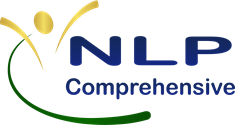Let’s bust a myth real quick.
You don’t need to be a coach, therapist, or hypnotist to use NLP.
You don’t need a certification.
You don’t need to change careers.
And no—you definitely don’t need to “fix” anyone.
Because NLP isn’t just for the stage or the Zoom room. It’s for the dinner table.
The boardroom.
The moment you’re staring at your to-do list and can’t find the will to move.
That’s when NLP really shines.
NLP Is Mental Gear for Everyday Life
NLP gives you practical tools to deal with real stuff—stressful meetings, tantruming toddlers, internal spirals, miscommunications, and hard conversations.
It’s not magic. But it is powerful.
You can learn to:
- De-escalate an argument without giving in.
- Interrupt your own negative thought loop and shift your emotional state.
- Help your kids manage emotions with more than “just breathe.”
- Influence a team without feeling like you’re selling something.
Let’s be honest—if you’ve ever said:
“I wish I could just hit reset on this moment,” what you really wanted was anchoring.
When you create a mental “reset button” using a breath, a touch, a memory—something that brings you back to calm—you’re anchoring. Intentionally.
That’s NLP in action.
Why So Many People Think It’s Just for Coaches
Because that’s who’s been talking about it for decades.
Trainers, coaches, practitioners. People who eat meta-model distinctions for breakfast.
But NLP didn’t start with coaches. It started with curiosity.
How do excellent communicators think and speak differently?
What do resilient people do inside their heads that others don’t?
Once we understood that, we could model it. Teach it. Use it.
And here’s the kicker: most people are already using NLP—they just don’t know it.
They’re anchoring. Reframing. Running strategies.
NLP just gives you the awareness and tools to use it on purpose.
Using NLP at Home
Real talk—raising kids, navigating relationships, dealing with family stress… this is prime time for NLP.
Let’s say your kid says:
“I’m the worst at math. I’ll never get it.”
Instead of reassuring them (“No, you’re great!”), try this:
“Hmm. What would have to happen for it to feel just a little easier?”
That tiny reframe shifts their brain from helplessness to possibility.
Or maybe your teen is spiraling after a bad day. You sit down, and you mirror their tone and body language before gradually softening yours. They start calming down with you.
That’s rapport and pacing.
Or maybe you create a “confidence anchor” with your child before a big test:
“Remember that moment you crushed your science project? Let’s hold that feeling right here”—touch their wrist or high-five them while they’re in state.
Then next time? You anchor it again.
Doesn’t take a credential. Just intention.
NLP at Work: Influence Without the Ick
At work, people often think NLP = persuasion. And sure, it can be. But it’s not about manipulating others.
It’s about becoming a better communicator—especially when things get tense, political, or emotional.
Let’s say a team member is resisting a new system.
Instead of, “This is what we’re doing—deal with it,” try:
“What would need to happen for you to feel confident trying this out?”
That’s a clean reframe. From resistance to exploration.
Or before a tough meeting, you fire up your anchor:
Touch your watch, breathe deeply, and recall that time you nailed a presentation.
Now you’ve anchored confidence before walking into the room.
These aren’t tricks.
They’re strategies for state management, outcome clarity, and communication that actually works.
Don’t Just Learn NLP—Use It
Too many people treat NLP like a book on a shelf: impressive, unopened.
But NLP isn’t a library—it’s a workbench.
You don’t need to master every model.
You just need to use the ones that help you navigate daily life more skillfully.
Try this shift next time your inner voice says,
“I always screw this up.”
Change it to:
“What’s a time I handled something like this well?”
That’s an NLP-style reframe. And it changes your neurology instantly.
Not because it’s magic.
Because you’re literally giving your brain better instructions.
NLP Is for Everyone—Not Just Experts
You’re already running internal strategies.
You’re already responding to anchors.
You’re already filtering reality through language.
So why not take the wheel?
Whether you’re leading, parenting, caregiving, running a business, or just trying to stay sane in a chaotic world… NLP can help.
Not because it’s some elite toolbox for gurus.
But because it’s practical, powerful, and—most importantly—usable.
You don’t need to be a coach to use NLP.
You just need to be a human who wants to communicate better, lead yourself more skillfully, and show up with a little more clarity and calm.
That’s enough.
And that’s where NLP belongs.

